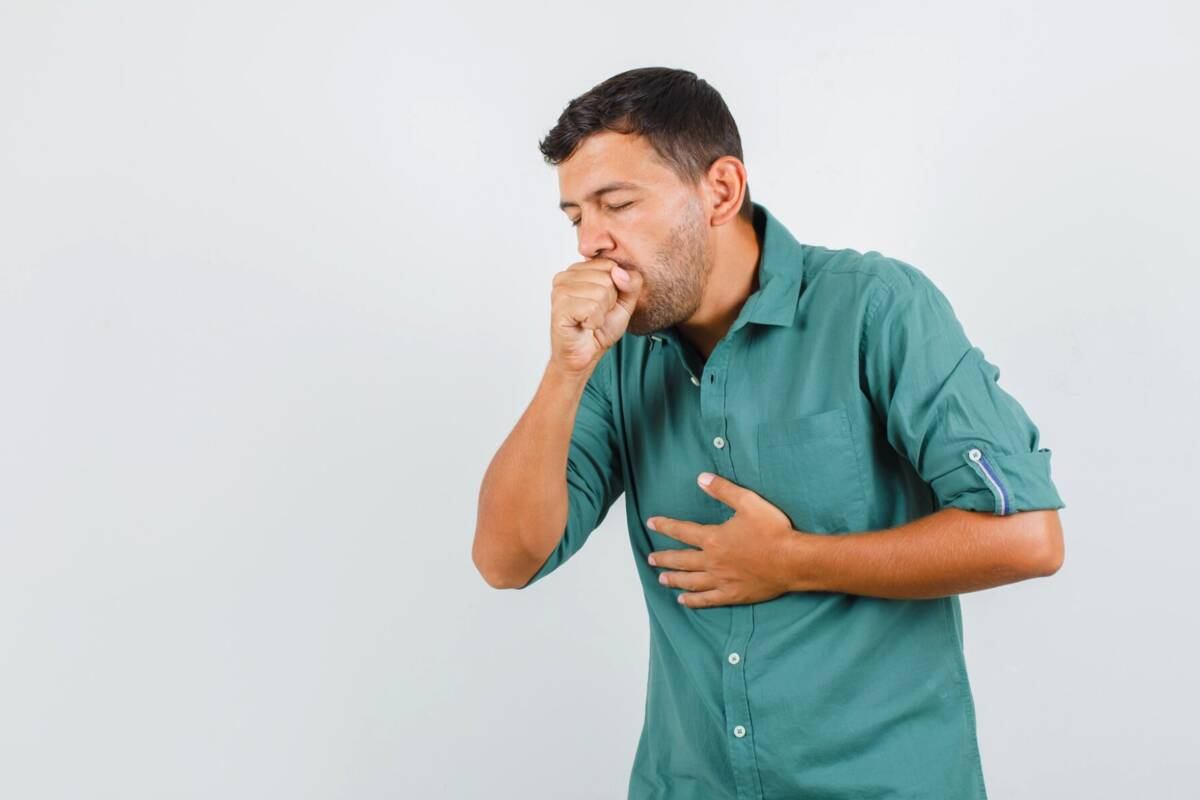Health
Gastroesophageal reflux cough


Gastroesophageal reflux cough is a disorder linked to gastric reflux which causes gastric juices to back up along the walls of the esophagus resulting in the manifestation of a series of typical symptoms, including: regurgitation, acidity, retrosternal pain and dry cough and persistent.
In this article we will evaluate what the causes and symptoms of gastroesophageal reflux cough are and what remedies to adopt to treat this unpleasant condition.
Symptoms associated with gastroesophageal reflux cough
Gastroesophageal reflux cough may appear along with other reflux symptoms. The symptoms of this disorder are divided into typical and atypical symptoms.
Among the most common symptoms of gastroesophageal reflux , also called typical symptoms, are:
- Retrosternal burning
- Acid regurgitation
- Epigastric pain
- Halitosis
This symptomatology can appear at different times of the day, especially after meals or at night, and can vary based on the severity of the disorder.
Among the atypical symptoms of gastroesophageal reflux we find:
- Chest pain
- Sore throat and hoarseness
- Nausea
- Difficulty swallowing
- Frequent belching
- Dry and persistent cough

In some cases, gastroesophageal reflux cough can occur as the only symptom and for this reason it can be mistakenly associated with other pathologies.
Reflux cough, in reality, represents a real defense mechanism that our body puts in place to counteract the rise of acidic stomach juices, and in fact it tends to occur in certain conditions, such as for example: following a meal especially if abundant, at night and finally if you lie down, as the horizontal position favors the ascent of gastric juices through the esophagus.
Causes of reflux cough
Under normal conditions, food ingested during meals passes through the esophagus, which in turn, through a valve called cardia, allows it to enter the stomach.
In subjects suffering from gastroesophageal reflux, this valve could open even in the absence of food, causing gastric juices to rise along the esophageal mucosa and causing the classic symptoms, including reflux cough .
In particular, gastroesophageal reflux cough is caused by the ascent of gastric juices towards the oral cavity with consequent activation, both directly and indirectly, of a coughing reflex which has the aim of eliminating acid compounds from the airways.
The major causes of gastroesophageal reflux , in addition to those related to esophageal valve failure, include:
- Consumption of foods with a high fat content , which cause a slowdown in gastric emptying
- Excessive consumption of coffee, alcohol, smoking or chocolate as they can cause irritation of the gastric mucosa and in fact, together with foods rich in fats, they are among the foods to avoid for gastroesophageal reflux
- Use of some gastro-harmful drugs including NSAIDs
- Excessive stress and anxiety
- Overweight and obesity which cause pressure on the stomach capable of causing alterations to the esophageal valve
- State of pregnancy , as hormonal variations and the pressure on the stomach caused by the growth of the fetus can cause alterations in the functioning of the esophageal valve.
Foods for gastroesophageal reflux
Gastroesophageal reflux events are closely related to eating habits and lifestyle. The foods recommended for gastroesophageal reflux include:
- Lean and protein-rich foods, such as: lean fish, white meat and eggs
- Fresh vegetables as they are low in fat and easy to digest
- Whole grains which, thanks to their high fiber content, reduce reflux episodes
- Some fruits such as: apple, pear, melon, banana and berries
In addition to preferring this type of food, it is necessary to prefer healthier cooking methods such as baking or steaming, and simpler condiments such as raw extra virgin olive oil alone.
Among the foods to avoid for gastroesophageal reflux are:
- Foods rich in fat, which slow down digestive processes and gastric emptying; in fact, these foods represent one of the most common causes of gastroesophageal reflux in children and adolescents
- Caffeine-based drinks
- Chocolate, mint and tomatoes as they directly cause irritation of the gastric mucosa
- Alcohol and carbonated drinks
- Elaborate and spice-rich condiments.
Remedies for gastroesophageal reflux
Among the various remedies for gastroesophageal reflux cough, the most important concern changes in lifestyle and nutrition.
In fact, to quickly and significantly improve the symptoms of reflux , it is necessary to put strategies into practice not only for therapeutic purposes, but above all to prevent and reduce the frequency of these episodes.
Here are some useful tips to treat and prevent gastroesophageal reflux cough :
- Avoid large meals and, where possible, prefer to consume smaller and more frequent meals
- Maintain a healthy weight and, if you are overweight, follow a weight loss diet drawn up by a professional
- Opt for a healthier, low-fat diet
- Limit the consumption of drinks such as chocolate, coffee, alcohol, citrus fruits and carbonated drinks
- Prefer healthier cooking methods
- Chew slowly
- Not smoking
- Do not lie down immediately after meals , but wait at least 3 hours to ensure that the horizontal position does not hinder normal digestive processes and to significantly reduce cough episodes due to gastroesophageal reflux
- Try to lead a more relaxed lifestyle
If, despite having observed these small precautions, the symptoms persist for long periods of time without any improvement, it is possible to resort to natural remedies such as: aloe vera gel, bicarbonate and citrates, chamomile or polysaccharide herbal teas, such as xyloglucan .
Finally, where necessary and under the advice of your doctor or pharmacist, you can opt to start a drug therapy.
Riproduzione riservata © - WT











